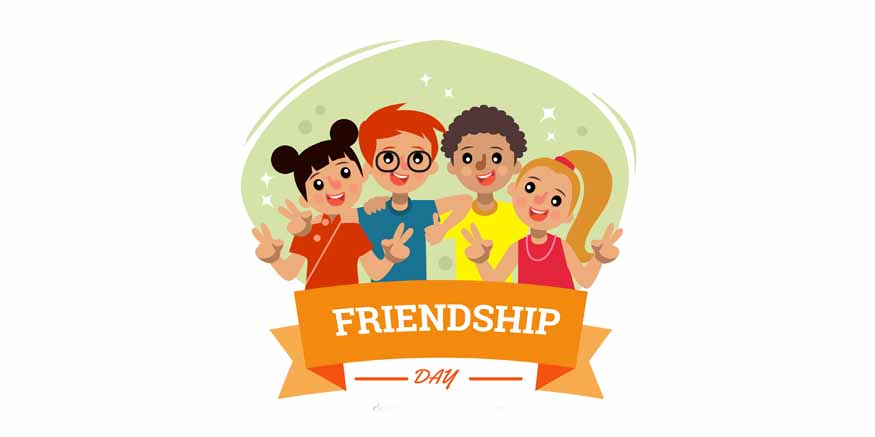A Guide to Building and Maintaining Healthy Friendships

Friendship is one of the most amazing necessities of life. Comfort, laughter, and emotional support are all offered. However, building strong bonds and maintaining true friendships takes time, trust, and understanding. Especially in teenage relationships, where emotions are sometimes intense, this guidance teaches you how to create genuine connections, improve your social skills, and maintain relationships throughout your life.
Knowledge of Healthy Friendships
When people openly share, respect one another’s viewpoints, and truly encourage one another, healthy friendships are formed. They support personal development and creating deep connections.
How Can a Friendship Be Healthy?
Honesty, sincerity, and respect are the foundations of a strong friendship. In times of difficulty, true friends support one another and celebrate success. Firm trust, honest communication, and the simple gestures of kindness that indicate how much they genuinely care is what keep the connection between two people.
Why Are Good Friendships Important?
Emotional wellness gets improved by having wholesome friendships. Good relationships support positive behaviour, lower stress, and make life more pleasurable. They provide a feeling of community, which increases self-worth and confidence. These friendships have a significant impact on how kids see the world and develop their sense of self.
The Value of Social Skills
- Connect with Others: You may naturally connect with individuals and form friendships if you have strong social skills.
- Manage Difficulties Calmly – teaches you how to deal with disagreements and difficult circumstances without becoming stressed.
- Establish Long-Lasting Friendships: Social skills strengthen and deepen bonds between people.
- Recognise Emotions: Assists you in identifying both your own emotions and those of others.
- Express Yourself: This skill teaches you how to communicate your ideas in a polite and constructive manner.
- Patience: Helps you to remain calm in the face of conflict and give others space to clarify.
How to Build Strong Bonds?
- Be sincere and truthful
- Show Support and Care
- Create Shared Experiences
The first step in developing friendships is being honest. The only thing you get out of pretending to be someone else is distance. Genuine friendships can develop when individuals accept each other for who they really are. Closeness is developed through sharing personal thoughts, ambitions, and difficulties.
Building trust with friends involves helping them during both happy and difficult times. They consider you as trustworthy when you encourage them or support them throughout difficult times. Teen relationships based on mutual respect are strengthened by this behaviour, which is crucial for creating solid partnerships.
Spending time together makes friendships memorable. People can feel more connected when they volunteer, learn together, or engage in enjoyable activities. Common experiences improve mutual understanding and continue to improve relationships that develop over time.
Nurturing Strong Friendships
- Stay Connected
- Resolve disagreements peacefully
- Respect Personal Space
Regular interactions are what sustain friendships. You can demonstrate your concern by texting, calling, or meeting in person. Regardless of how hectic life is, even brief texts may develop a sense of closeness between friends.
Every friendship has problems. Trust can be maintained by listening, remaining calm and coming up with a solution. Avoid harsh words or ignoring problems to protect the friendship.
When friends enjoy their own space, it shows respect. Giving them space keeps connections balanced and healthy, especially in relationships with teens where emotions shift regularly.
How Teen Friendships Grow and Change?
Teen friendships keep evolving as emotions mature, priorities shift, and understanding of real friendship deepens.
Understanding How Teen Friendships Evolve?
- Friendships shift as teens discover new interests and personalities.
- Sharing feelings and being supportive strengthens connections.
- These changes teach the value of genuine, healthy friendships.
Balancing Expectations and Emotions
- Teenagers usually argue, misunderstand, and feel jealous.
- Holding your cool while listening, and communicating effectively develops stronger connections.
- When emotions are under control, social skills improve and conflicts decrease.
Balancing School, Family, and Friends
- Balancing studies, family time, and social life keeps friendships stable.
- Prioritizing responsibilities while staying connected helps bonds last.
Choosing Friends Who Encourage Growth
- Good friends motivate, respect boundaries, and bring positivity.
- Such friendships build confidence, trust, and long-term support.
The Role of Trust and Communication
Trust and communication form the foundation of every strong friendship, helping people stay connected with honesty and understanding.
Building Trust Gradually
- Trust develops over consistent actions rather than promises.
- Reliability and honesty make others feel comfortable and respected.
- When trust is strong, misunderstandings reduce and friendships become more genuine.
- It creates a sense of safety that helps relationships withstand challenges.
Communicating with Care
- Open communication keeps friendships clear and balanced.
- Listening actively and expressing thoughts kindly prevent conflicts.
- Honest discussions promote mutual respect and emotional comfort.
- When both friends communicate freely, their bond naturally deepens over time.
How Are We Keeping Friendships Healthy in the Digital Age?
Friendships stay strong in the digital age when we use devices responsibly, focus on meaningful conversations, and balance screen time with face-to-face interactions.
Use Technology Wisely
Since social media can bring people together rapidly, it’s crucial to use it responsibly to keep connections strong. Healthy friendships can be maintained by sending encouraging messages and avoiding online fights.
- Keep Online and Offline Time in Balance
- Preserve privacy and honour individuality
Overuse of the internet may destroy genuine relationships. Strong relationships are formed and friendships are strengthened through in-person meetings, conversations, and interest sharing.
Everybody’s level of comfort with the internet is different. Teenage interactions become easier and trusting when privacy and limits are respected.
Signs of a True and Lasting Friendship
- Mutual Respect and Support- A true friend respects opinions, celebrates success, and stays supportive during failure. These actions show genuine care and help in maintaining friendships over the years.
- Honest Feedback- Real friends tell the truth with kindness. They help each other improve and learn.
- Consistency and Loyalty- It means being there even when life gets tough. Remembering special days or staying in touch strengthens bonds and shows true friendship.
Guiding Teens to Build Strong Friendships
- Encourage Teens to Develop Healthy Relationships: Mentors, parents, and educators assist teenagers in developing positive friendships. Teen relationships based on mutual respect and trust are strengthened when they are encouraged to participate in clubs and group activities.
- Develop Empathy and Respect: Teens develop socially and emotionally by recognising the emotions of others. Learning empathy and respect promotes caring and sharing, which boosts the formation of solid ties as well as helps in preserving friendships.
- Promote Honest and Open Communication: Strong connections are developed through genuine interaction. Teens develop the ability to communicate their emotions, provide an apology, and settle disputes quietly, all of which promote wholesome friendships in which both parties feel appreciated.
- Establish Safe Spaces for Friendship Development: Teens can develop friendships organically in safe environments at home or at school. Being at ease when sharing develops confidence and trust, which supports teen relationships and lasting, honest friendships.
Conclusion
The threads that bind happiness into life are friendships. Good friendships generate compassion, trust, and patience. They remind us that real connections need honesty, patience, and effort. Respectful and supportive teen relationships can help young children develop positive social skills. The establishment of lifelong, pleased, secure, and cosy connections is facilitated by mastering the art of building strong bonds and maintaining friendships.
Billabong High International School (BHIS) understands the value of social development and creates an environment in which students learn to connect, collaborate, and care for others. Get in touch with us right now to learn more about our curriculum!













